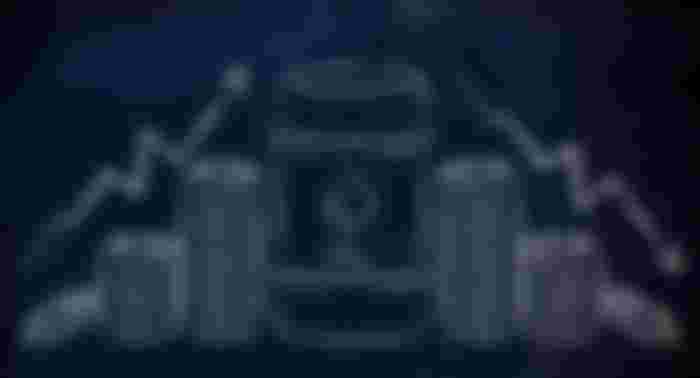As you probably know, Venezuela is one of the richest oil countries in the world and the richest one from all Latin America countries. It's hard to believe this looking at how Venezuela is today, economically speaking. Think about this, that Venezuela's oil deposits are way bigger than those of Saudi Arabia, Kuwait and United Arab Emirates, and still the country is today a total mess.

Venezuela has always had a relationship with oil. The whole country is almost floating on an ocean of petroleum. It was known that even in times before the Spanish acquisition, that the indigenous population of the country used the oil tars that seep from the ground to waterproof their canoes or keep fires going throughout the night.
Venezuela has always had a taste for the stuff, but it wasn't until the 1970s that it became front of mind in the eyes of the world. When then President, Carlos Andrés Pérez Rodríguez, effectively nationalized all oil production in the region.
Now, we have seen before that nationalizing oil production is not necessarily a bad thing. In the case of Norway, it meant that a lot of oil revenue was returned to the country itself, which is great. The Venezuelan process though was a lot more bureaucratic and despite having huge oil reserves, the country's output was severely limited. It also wasn't a huge help that the country was a member of OPEC, a group of oil-rich states that basically had a pact to not flood the market with oil to keep prices high. You might ask isn't that a monopoly? isn't that illegal and, yes, it did acting in a monopolistic and anti-competitive ways, but these were sovereign states. They are in many senses above the law.
Oil production in Venezuela was at this time almost completely handled by the PDVSA, which stands for Petroleum of Venezuela, was a state-owned oil company. It had a monopoly on oil production in the country. This was very similar to Norway Statoil corporation, now called Ecuador. It was a business in structure and nature, but its only investor was the government and all the profit was for the government. Where Venezuela's government enterprise differed though, was the incredible levels of corruption. Oil company officials would frequently misuse government money that was intended to go towards investment into oil production. What this meant was that during the 1970s, almost no new oil fields were brought online, which for an oil company, that is literally given free access to the largest oil fields in the world, is pretty terrible.
Thus started to turn around though when Hugo Chavez took office in 1999. He sought to turn around the inefficiencies in the state's oil company. He started setting quotas for the company to meet and came down hard on corruption and bureaucracy built into the lumbering inefficient semi government agency. This all came to a head in 2002 when the employees of the company went on strike, effectively complaining that this state-owned oil company was actually been expected to produce oil. Crazy, I know!!

Chavez saw to this by basically kicking the workers out and installing new workers into the company, that were loyal to him and his plans for the oil revenues that would flow. The oil production of the company boomed and the Venezuelan government was able to ride the high of the early 2000s oil prices to massively increase the government's income. The government of Chavez was also very economically left-leaning and so a lot of this revenue was distributed to the people of the country through government welfare programs. This is, so far, actually not too bad. It actually sounds pretty great. It even sounds very similar to what happened in Norway. But this is where it all went wrong.
While most oil-rich countries recognize that oil does not last forever, Venezuela decided to go on a spending spree. Taxes were lowered and government spending was massively increased. This government spending, for the most part, did not actually go towards productive infrastructure or even something like a sovereign wealth fund that could have provided the country with a long-term foundation of wealth. No! Instead, this was spent on government handouts that did work to improve the quality of life for the average Venezuelan, but it did so in an extremely unsustainable manner. Similar to someone winning the lottery and then buying a truckload of caviar to feed the local homeless shelter. I mean, sure, it kind of does the trick and you would be extremely popular, but canned food would probably last longer and be an overall better investment for the greater good.
The vast oil production also led to a very serious economic phenomenon that would go on to plague the nation: the Dutch disease.

Dutch disease was a term coined in 1977, following the decline of the manufacturing center of the Netherlands, after the discovery of a large natural gas field in the country. It is a term used to describe the impacts that poorly handled oil and resource wealth can have on an economy and Dutch disease hit in Venezuela hard.
When a country like Venezuela starts exporting oil, its currency shoots up in value, because people need to purchase Venezuelan currency to purchase Venezuelan oil. This may seem like a good thing, but an artificially stronger currency causes issues elsewhere in the economy. Suddenly, it becomes very cheap for Venezuelans to import foreign cars and foods and cigarettes in the light, because their dollar has shot up in value. This means that local industries start to suffer, because it becomes cheaper to import something that it is to buy locally, especially given their position in Latin America, surrounded by countries with very low cost of living.
Stay tuned for Part 2 which will be posted tomorrow. Things will get much more interesting and I will present and explain how Venezuela went into a total economic collapse.
My successful faucets!
PipeFlare & Hive ZCash - ZEC with tier 4 referral program
FreeCryptos: (DASH), (TRX), (ETH), (Cardano), (BNB), (LINK), (NEO), (LTC) & (BTC)
Stakecube (over 20 single click faucets per day)
Get Maiar for free! The future of money: powered by Elrond!
Join DeFi and get $30 of DFI. Join CakeDeFi now!!
Try Celsius and earn $20 for free.



💖💖